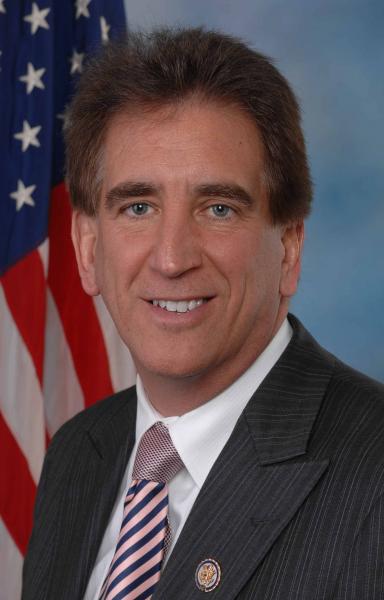New bill ties 3-day stay waiver to Nursing Home Compare ratings
The three-day inpatient hospital stay requirement for Medicare coverage of Part A skilled nursing care benefits would be eliminated under a bipartisan bill introduced yesterday in the U.S. House of Representatives. The American Health Care Association/National Center for Assisted Living (AHCA/NCAL) has expressed support for the legislation.
The new bill, known as the Creating Access to Rehabilitation for Every Senior (CARES) Act (H.R. 3531), is one of several under consideration to address the current Medicare payment policy, which covers skilled nursing services for beneficiaries only after they spend three midnights as a hospital inpatient. Under the CARES Act, however, SNFs meeting certain criteria based on the Centers for Medicare & Medicaid Services (CMS) Nursing Home Compare program automatically would qualify to waive the prior hospitalization requirement.
 The act was introduced by Rep. Jim Renacci (OH-16), pictured left, who is a former operator and manager of LTC facilities in Northeast Ohio.
The act was introduced by Rep. Jim Renacci (OH-16), pictured left, who is a former operator and manager of LTC facilities in Northeast Ohio.
“I am encouraged to see Congressman Renacci’s innovative solution to this ongoing three-day stay issue,” says Clif Porter, the incoming head of government affairs for AHCA/NCAL. “This bill encourages mutual, positive relationships between individuals seeking skilled care and facilities who work hard to achieve high quality ratings.”
AHCA/NCAL, which represents more than 11,000 non-profit and for-profit nursing facility, assisted living, developmentally disabled, and subacute providers that care for about 1 million elderly and disabled individuals, supported a similar bill introduced by Rep. Jim McDermott (D-WA), the Fairness for Beneficiaries Act of 2013 (H.R. 3144), which also sought to eliminate the three-day stay requirement. AHCA/NCAL continues to support Reps. Joe Courtney (D-CT) and Tom Latham (R-IA), along with Sen. Sherrod Brown (D-OH) in the legislation they introduced, The Improving Access to Medicare Coverage Act of 2013 (H.R. 1179), which seeks to count all hospital days spent in observation towards the three-day stay requirement.
“We agree with Rep. Renacci that Medicare beneficiaries and those who serve them should not be subject to over-regulation," Cheryl Phillips, PhD, LeadingAge's senior vice president of public policy and advocacy, tells Long-Term Living. "Medicare Advantage and other managed care plans, which are at risk for all of a beneficiary’s healthcare costs, do not need the three-day stay rule to prevent over-utilization of the skilled nursing benefit."
LeadingAge, which represents 6,000 not-for-profit aging services organizations, says it supports pilot projects being pursued by CMS to address the three-day stay, as well as legislation such as H.R. 1179 and S. 569, as long as adequate oversight and safeguards against misuse can be put into place. Those two bills would count toward the three-day stay requirement any time a Medicare beneficiary spends in a hospital under observation.
"In the present federal budgetary climate, with Congress seeking every possible savings in Medicare spending, it would be surprising to see the skilled nursing benefit opened up to the extent allowed under H.R. 3531 without the oversight and safeguards under development by CMS,” Phillips adds.
Lead co-sponsors of H.R. 3531 include Rep. Marcia Fudge (D-OH), Rep. Tom Price (R-GA), Rep. Daniel Webster (R-FL), Rep. Mike Kelly (R-PA), Rep. Steve Stivers (R-OH), Rep. John Carney (D-DE), Rep. Ron Barber (D-AZ), Rep. Larry Bucshon (R-LA) and Rep. Derek Kilmer (D-WA).
See other content by this author here.

Lois A. Bowers was senior editor of I Advance Senior Care / Long-Term Living from 2013-2015.
Related Articles
Topics: Advocacy , Executive Leadership , Medicare/Medicaid , Regulatory Compliance










